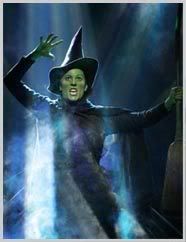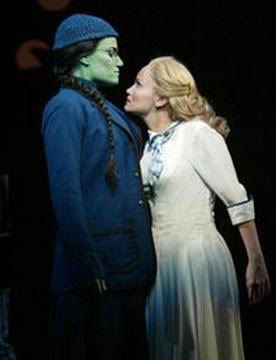 |
As
conservative
Christian groups seem
to have problems and concerns with some of the subject matter that is
being presented in popular culture, Wicked would not be a production
that people with conservative Christian beliefs would likely support.
One
of the main
issues is that fact
that the musical deals with witchcraft and magic.
The main
characters in Wicked are
witches, the school they attend, called Shiz, is a school where they
learn witch craft and cast spells on others, some of witch alter
other people’s fates. It says in the bible found in
Deuteronomy
18:10-11: “Let no one be found among you who sacrifices his
son or
daughter in the fire, who practices divination or sorcery, interprets
omens, engages in witchcraft, or casts spells, or who is a medium or
spiritist or who consults the dead.” This passage advocates
that
subject matter dealing with witchcraft is forbidden. Therefore,
representing such themes in popular culture is not encouraged by
conservative Christians.
|
|
Furthering these themes of witchcraft
and magic, conservative Christians would also reprimand the musical
due to the ideals that the main characters embody and the qualities
that they portray. For example, for the people in Oz who practise
witchcraft and believe in magic, the Wizard is their leader. Magic is
like their religion and the Wizard is the leader of it. He is the
all-powerful and fearful one. All of the citizens, especially
Elphaba, put a great deal of faith in him and hold him in high
regard. Elphaba even bases her dreams and goals around meeting and
working with the Wizard. The problem with this is that the Wizard, as
he could be paralleled to Jesus, the leader of the Christian faith,
turns out to be a phoney with no powers at all and actually virtues
negative merits such as oppression. The Wizard represents the
difference between how things appear to be and what the reality
actually is. Conservative Christians do not approve of such a popular
program presenting subject matter where belief systems are corrupted
and where people are encouraged to explore the societies in which
they place their faith especially when it parallels their own.

|